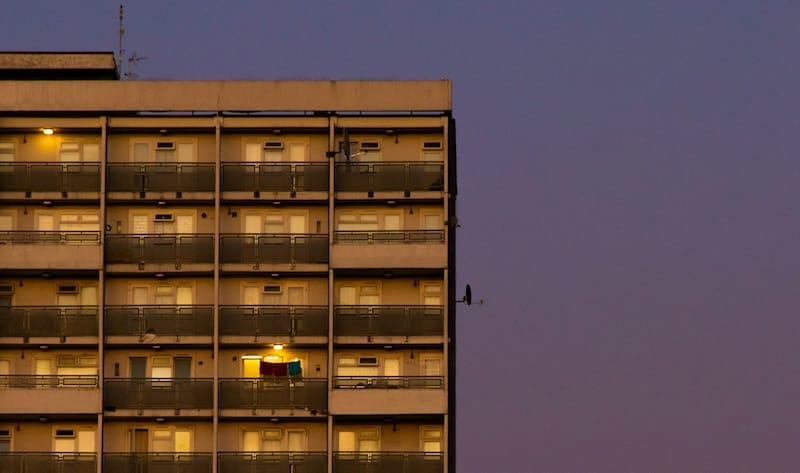Tramy Cheung, MA law student at the University of Bristol, dives into The Social Housing Regulation Act 2023, analysing its potential impacts on the most vulnerable in society

Seventy-two lives were lost in the Grenfell Tower fire in June 2017. This tragedy sparked outrage over housing safety, social housing standards, and the reluctance to address tenants’ complaints.
Following the Grenfell tragedy, the government issued the Social Housing Green Paper which aimed to “empower the tenants” and improve house safety in 2018. Further, a White Paper entitled ‘The Charter for Social Housing Residents’ which contained numerous provisions, including social housing safety standards, monitoring landlord performance, complaints handling procedures, consumer regulations, and quality of living, was published in 2020. Fast-forward to 2023, The Social Housing Regulation Act 2023 received royal assent to officially become a law in the UK and be fully enacted in 2024.
As a relatively new Act, one may wonder: what is it actually? What changes does it make? How are tenants being empowered? How does it affect tenants and landlords? What are the implications?
What is social housing?
Those who are not UK residents might not be familiar with the term “social housing.” It refers to housing provided for people who cannot afford private market rates. Social housing rent is typically about 20% below local market rents or somewhere between social and market rents. From 2016 to 2018, approximately 3.9 million people lived in social housing. Additionally, in 2022-2023, the median net household income for social housing tenants was £290 per week.
The key provisions
a) Safety standards
One of the main intentions of this Act is the avoidance of tragedy. Section 2(4) requires landlords to appoint a designated individual responsible for adhering to health and safety standards, such as gas, electrical, and fire safety. Section 10A also offers more significant protection for social housing tenants regarding severe problems such as dampness and mould in the property, known as ‘Awaab’s Law’. This follows the tragic case of Awaab Ishak who died in December 2020 as a direct result of exposure to mould in the social home his family rented. Landlords will be henceforth mandated to examine and repair tenants’ homes within a reasonable timeframe or relocate the tenants to a safer place.
b) To hold the landlords be accountable
This Act also grants tenants greater powers to hold inadequately performing landlords accountable. Tenants can access an information scheme to obtain data about housing management. For example, they can research whether registered contractors or providers have met regulatory standards, as well as details about management expenditures and financial performance. Additionally, registered providers must disclose details about Tenant Satisfaction Measures, enabling tenants to understand landlords’ performance
c) Handling complaints for home enhancement
To facilitate dealing with complaints more efficiently, the Act authorises the Housing Ombudsman to publish a code of practice for registered providers. This will guide landlords when implementing systems of dealing with any complaints made against them. For example, the code of practice advises landlords to establish self-assessment tools to assess their performances, as well as offering guidance on making effective apologies to tenants and handling complaints.
Further, an advisory panel which includes different stakeholders and social housing tenants is established under this Act to ensure these factors are well-delivered by landlords. Consumer standards are also heightened, so landlords must now consider tenants’ perspectives, guarantee fair outcomes, and support effective oversight of their own services.
More importantly, the ‘serious detriment test’, which once obstructed the regulator from interfering unless tenants were considered at risk of a ‘serious detriment’, has been removed. So regulators can now proactively scrutinise and enforce matters when landlords fail on consumer issues.
There are corresponding penalties to deter those who do not obey the Act, including imposing unlimited fines, enforcement notices, and changing the new housing management.
Want to write for the Legal Cheek Journal?
Find out moreImpact of this Act
As mentioned earlier, social housing tenants typically belong to a low-income group, making them amongst the most vulnerable in society. Essentially, many just need a place to live. However, landlords have previously been able to take advantage of this vulnerability because their tenants have lacked the power to compel landlords to carry out essential and urgent repairs.
Although this Act has only recently been implemented, its full impact is still unknown. However, one thing is certain: it has helped to rebalance the power of tenants and landlords, making the system more just. Whilst it may not be yet perfect, at least tenants now have legislation to rely on to protect their rights.
According to Government statistics in 2023, about 14% of households (3.5 million) live below the Decent Homes Standard. Social housing tenants reported lower well-being scores compared to owner-occupiers and private renters. It’s noteworthy that around 4% of social housing households with residents having long-term illnesses or disabilities lived in damp conditions. While this percentage might seem small, it’s important to emphasise that people not only have the right to a home but also the right to a “decent home“.
This Act has significantly improved the quality of life, including physical and mental wellbeing of tenants, by providing greater protection, stricter safety regulations and higher living standards. Also, this Act requires the regulators to possess specific qualifications to maintain professionalism, which signifies the tenants could receive better service. In short, social housing tenants could now be more secure, understanding that the improved standards mean that the risk of another tragedy, similar to the Grenfell Tower fire, is reduced.
Moreover, the Social Housing Act 2023 empowers social housing tenants by granting them vital information about their landlords’ performance and ensuring that they can utilise relevant mechanisms, as mentioned above, to hold their landlords accountable. This transparency and empowerment facilitates more proactive actions from tenants and regulators in housing management, guaranteeing that landlords would maintain satisfactory performance and that the living environment is as decent as they would be willing to live in.
This Act would also further promote economic stability because the tenants who suffered from an inhabitant environment do not need to worry about the cost of relocating and repairing since the Act bestowed the responsibilities on the landlords. The social housing landlords are now obliged to repair the affected tenants’ property within a reasonable time or resettle them in a safer place. Therefore, it could protect the tenants’ savings and avoid worsening their financial situations during the living cost crisis.
To conclude, society should welcome and support this Act as it dramatically enhances landlords’ responsibilities and housing standards. Consequently, the social housing tenants could eventually enjoy a more secure and dignified living environment. The housing system as a whole would also be fairer and more just, which benefits everyone and helps prevent tragedy from occurring.
Tramy Cheung is a first-year MA law student at the University of Bristol, hoping to be qualified as a solicitor with strong interests in real estate and immigration law while remaining open to other areas of commercial law.
 (
( (
(
